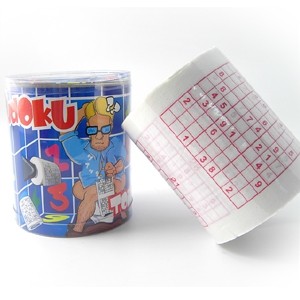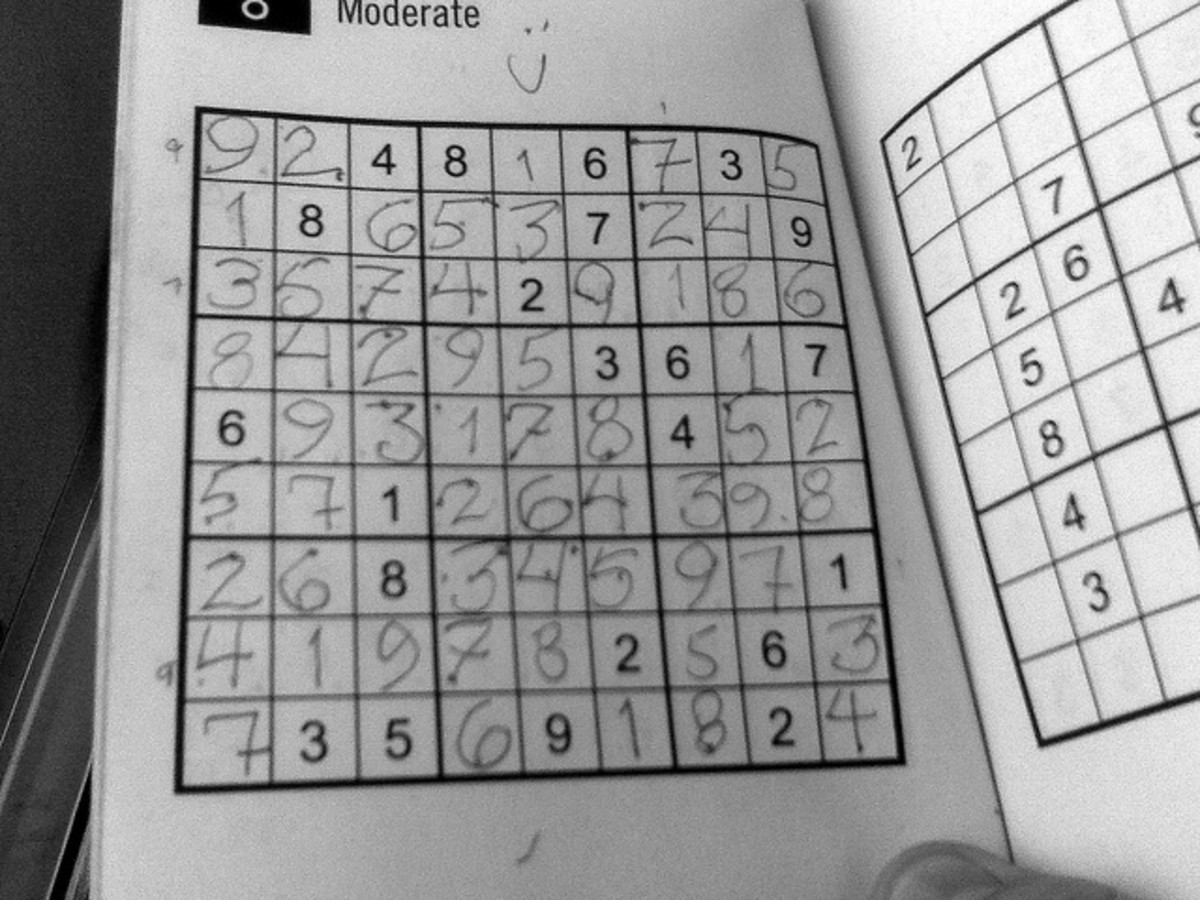Sudoku Origin and History
Click Here to Get Sudoku Gadget
Where Did the Game Sudoku Originate?
Ever wonder where did Sudoku origin? If you think it was the Japanese who invented Sudoku puzzle, you're in for a surprise. The current craze over Sudoku may originate from Japan, but there is more than meet the eyes.
People these days tend to rely on the fruits of modern technology to pass their spare time. Everywhere you turn you see people watching TVs, or listening to MP3 players. In ancient time though, such innovation did not exist, so our ancestors had to turn to other forms of entertainment. You do love all sorts of mind twisting activities that stimulate your brain, don't you? So did our ancestors. It's only human nature. They explore their creativity to formulate brain twister in the form of riddles and puzzles.
Sudoku happens to be one of the games created from such exploration. Like some recent games we see today, it is based on games that have existed since ancient times with some innovations applied. Before we go further on Sudoku origin, let's see how to play Sudoku and what it is all about.

Get Sudoku Toilet Roll @ Amazon
How to Play Sudoku?
Sudoku is a puzzle game requiring you to place numbers with one simple rule. You have to place the digits from 1 to 9 so that they appear on each row and column within the game board of 9x9 grid once only. The grid is further divided into nine 3x3 sub-grids, sub-squares, boxes, regions or blocks, however you want to call them. Again, you can only fill in the digits 1 to 9 once in each of these boxes.
You don't start off a Sudoku game with a blank grid. The puzzle setter will provide you with a partially filled grid. You'll then have to complete the other blank spaces with the numbers using logic and deduction following the simple rules stated above. The difficulty level of the game depends on the amount of pre-filled numbers. The more the game board has been pre-filled with digits, the easier it is to complete the game. Conversely, the less numbers given, the more difficult the game level.
Get Sudoku Puzzles @ Amazon
What does Sudoku Mean?
The name Sudoku originated from Japan. It is made up of two Japanese kanjis: Su meaning digit or number; and Doku meaning single or alone. So in English, Sudoku means "single digit," or "a number by itself." In fact, the name Sudoku is an abbreviation itself.
When the puzzle was first published in the paper Monthly Nikolist in April 1984, the Japanese company, Nikoli, introduced it as Sūji wa dokushin ni kagiru (数字は独身に限る). Translated to English, it is roughly "the digits must occur only once" or "limited to single figures." Obviously, it was a mouthful. Later in 1986, Kaji Maki, the then company president of Nikoli, abbreviated it to Sudoku, the name which has since become a trademark of the Nikoli Co. Ltd.
Sudoku Origin and Modern Sudoku History
While Sudoku is the name the world has come to know of this puzzle game in its present form, Sudoku origin isn't of Japanese. Neither Kaji Maki nor Nikoli Co. was the inventor of the game. They did introduced two innovations in 1986 though: the number of given digits was restricted to 32 or less; and the givens were distributed in rotationally symmetric cells, so the puzzles became "symmetrical."
Depending on how rigid you define what really constitutes a Sudoku puzzle, you can in fact trace its evolution through a long string of paper and pencil puzzles in history. The first shape of Sudoku perhaps can be seen from the magic squares appearing in China around 1000 BC or earlier if you go along this route. As the modern game we know it today though, Sudoku has a much more recent history.
Get Sudoku Games @ Amazon
In the late 19th century,
number puzzles based on the magic squares started to appear in French
newspapers. Such weekly puzzles became a feature of the French
newspapers till about the time of the First World War.
In
November 1892, the Paris daily known as Le Siècle published a number
puzzle with partially filled 9x9 magic square with 3x3 sub-squares. It
wasn't quite Sudoku yet as it used double-digit numbers and needed
arithmetic skills to solve. Still, it shared the main characteristics of
each row, column and sub-square adding up to the same number.
In
July 1895, another daily by the name of La France printed a fine tuned
version of the puzzle. Now, only the numbers 1 to 9 can appear in each
and every row and column of the 9×9 magic square, with each 3×3 region
comprised of the numbers 1 to 9 as well. There was an additional
constraint though that broken diagonals must contain the numbers 1-9.
Otherwise, the puzzle would end up having more than one solution.
The
first recognizable Sudoku puzzle was published in May 1979 by Dell
Magazines in their Dell Pencil Puzzles and Word Games. Known as "Number
Place" in those days, the game was most likely designed by Howards
Garns. Garns was a retired American architect and a freelance puzzle
creator born in Indiana. Number Place became popular in the mid-1980s in
Japan after being picked up and renamed Sudoku by the Japanese Nikoli
company. Then in 2005, Sudoku became an international hit after The
Times of London started printing it in November 2004. Howards Garns, the inventor who made the first modern Sudoku, however didn't live to see the day as he died in October 1989 at the age
of 84.
Were you pleasantly surprised that Sudouk origin not from Japan but America? Despite them not being the inventor, the Japanese should be given credit for recognizing the potentials of the puzzle. Sudoku challenges our critical thinking and enhances our logical deduction ability. Best of all, it gives us great pleasure when we solve the puzzle. It doesn't matter whether Sudoku origin is Japanese or American, we owe much gratitude to the people behind the discovering and developing of the Sudoku puzzles.










